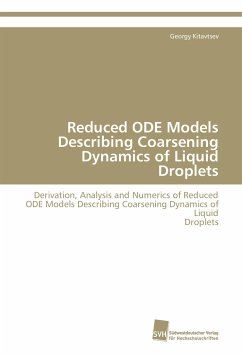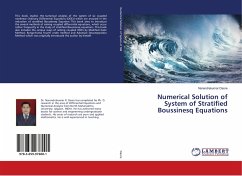In this dissertation we consider the topic of derivation, analysis and numerics of reduced ODE models corresponding to a family of one-dimensional lubrication equations. This family describes the dewetting process of nanoscopic thin liquid films on hydrophobized polymer substrates due to the presence of the long-range attractive van der Waals and short-range Born repulsive intermolecular forces and takes account of all possible ranges of slip-lengths at the polymer substrate interface. The final stages of the dewetting process are characterized by a slow-time coarsening dynamics of the remaining droplets that are separated and interact with each other through a nanoscopic ultra thin liquid layer. Reduced ODE models derived from underlying lubrication equations allow for an efficient analytical and numerical investigation of the coarsening process. Our interests in this study are to investigate the influence of slip-length on the coarsening dynamics using the derived reduced ODE models and to suggest methods for rigorous justification of these models.
Bitte wählen Sie Ihr Anliegen aus.
Rechnungen
Retourenschein anfordern
Bestellstatus
Storno








